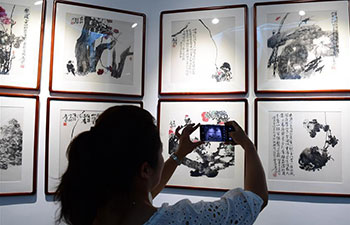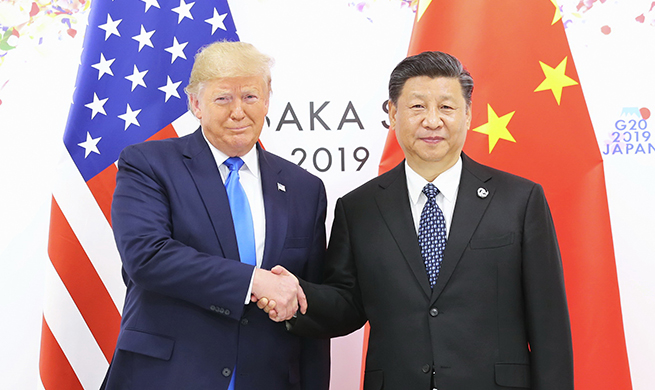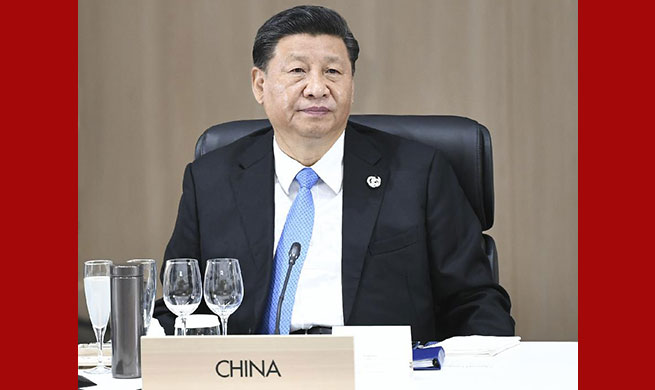by Keren Setton
JERUSALEM, June 30 (Xinhua) -- A growing number of Israeli pupils are studying Chinese language as part of their matriculation exams.
However, when the program began in 2009, there were only a few students.
In a small classroom in Jerusalem, six students were reciting Chinese words after their teacher.
Katerina Shram, their teacher, also spoke words in Hebrew and asked them to translate into Chinese. They were quick to answer, preparing for the next day's test.
"From year to year, you can see the greater understanding that we need to communicate with the Chinese people. We need relations with them and learning Chinese gives you the option to create business relations," she told Xinhua.
According to the Israeli ministry of education, about 3,000 students are currently studying Chinese as part of their matriculation exams, in about 100 schools across the country.
There are even schools that teach Chinese as a second language as early as elementary school. In line with that trend, a few years ago, a children's TV channel introduced Kai-Lan, a cartoon show helping kids learn their first words in Chinese. The show ran for a few years and is still available in its Hebrew translation online.
Some of the students met surprised reactions to their choice to study Chinese.
"My family was shocked at first. It's just another language," said Shir Aluf, a student of Shram's Chinese class.
"You can see nowadays parents bring their children. Now it is really the parents that recommend their children to study Chinese," said Shram.
The Hebrew University in Jerusalem was the first to teach Chinese in the Middle East in 1958. Chinese culture and language has fascinated many since then.
The increase in the number of people choosing to study the Chinese language probably has to do with the improvement of ties between Israel and China in recent years.
There is growing cooperation between the two, especially in the business sector. According to the Israeli foreign ministry, trade between the countries has exceeded 11 billion U.S. dollars, making China Israel's third largest trade partner.
"It is part of the process of the cultures and peoples coming closer together, it helps lessen alienation," said Lihi Yariv-Laor, chair of Confucius Institute at the Hebrew University of Jerusalem.
"I think it is the most useful language at the moment and this is what is on the rise now and spreading," said Itai Schimmel, a student, explaining the main reason why he chose the language as part of his curriculum.
"I don't see any other language so useful, as more than a billion people speak it," said Maya Daniel, one of Schimmel's classmates.
As part of a growing understanding in China, three delegations from the country visited the Jerusalem school alone in the past year according to Shram.
She teaches in several schools in Jerusalem and studied Chinese language at Harbin Engineering University. She was born in Vladivostok, Russia, a city that borders with China. For her, China was not something distant or exotic.
Shram hopes some of the students will be able to pass the Chinese proficiency test in the future. For now, students who finish the matriculation exam are fluent in basic Chinese and can have simple conversations in the language.
Shram also takes pride in her job and has a dream of extending the study of the language to establish a center that will enable people to explore all aspects of the Chinese culture, including history, dance, calligraphy and cuisine.
"It is really a skill, and is a profession that can be combined with thousands of other things that one can study," she told Xinhua.

















